In the present-day fast-paced and changing corporate world, good management is critical for driving growth, encouraging innovation, and attaining success. Let’s explore some of the best management books of all time that have stood the test of time and continue to shape the way we lead and manage.
Over the years, numerous management books have been published, offering insights, strategies, and frameworks to help leaders handle challenges and maximize their potential. From timeless classics to contemporary bestsellers, these books continue to inspire and empower managers worldwide. Whether you’re a novice manager, an experienced manager, or someone in pursuit of management, the list might be useful.
25 Best Management Books
1. How to Win Friends and Influence People by Dale Carnegie
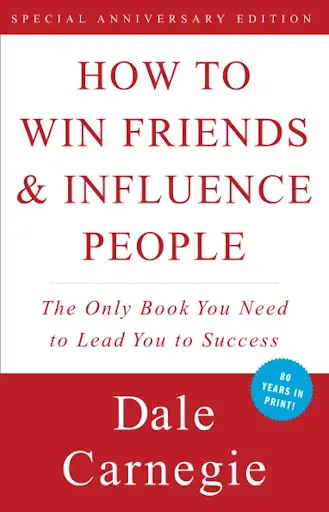
This book by Carnegie has to be at the top of any list of the best management books. It is without a doubt one of the most well-known management books ever written, and for a solid reason.
The author reveals some of the “soft skills” of effective management, like making everyone feel appreciated and loved. Putting the principles in this masterpiece into practice can help you become a better manager, thinker, and team builder.
2. The Art of War by Sun Tzu

This book, which was written over two thousand years ago, is still regarded as one of the best books for management professionals all around the world.
The author Sun Tzu was a military officer who wrote down his thoughts on battle and management.
“Prevent what is powerful and aim at what is weaker” is just one example of ageless wisdom. All 13 chapters of the book are focused on a different philosophy.
3. Team of Rivals by Doris Kearns Goodwin

Doris Kearns Goodwin, a Sorbonne Gold medalist is the author of Team of Rivals. In this New York Times bestseller book, the writer narrates the extraordinary leadership qualities of US President Abraham Lincoln.
It documents how, amid a conflict, he brought the people together and abolished slavery. She demonstrated how the president associated himself only with the greatest individuals he could find, not always those he liked.
He brought individuals of many views together and rallied them around a single objective. A strong leader should be modest and brave in the face of change.
4. Leaders Eat Last: Why Some Teams Pull Together and Others Don’t by Simon Sinek
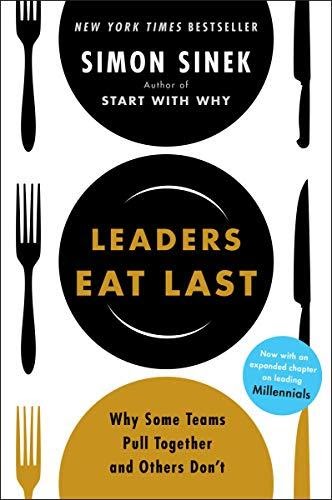
How do some organizations work together to complete a mission, while others fall apart due to arguing, infighting, and betrayals? After speaking with a Marine Corps commander, the author explores this subject in Leaders Eat Last.
He saw that the younger Marines were served first, whereas the experienced Marines were seated at the rear of the line. “Leaders eat last,” the general emphasized since what was figurative in the dining hall was deadly serious in action.
Leaders must put their convenience and sometimes even their lives on the line for the sake of the team they lead. He then goes on to give instances of genuine business and commercial stories to support his points.
5. The Coaching Habit by Michael Bungay Stanier

The Coaching Habit is a highly-rated management book for people working as managers. It is authored by Michael Bungay Stanier. Some of the major key takeaways from this book are the following:
The finest managers don’t merely make it easier for their employees to work together. They also assist their employees in their development. As a result, everyone may take on more responsibility and contribute more to the business.
Sadly, it’s all too tempting to rush in and provide counsel or maybe even make a stand when a group member is facing a problem. However, this strategy stifles their development.
It also fosters a sense of dependence on you to address future problems. This book is all about how to use a coaching attitude to help others progress.
It provides seven effective questions you may use to improve your outcomes. Also, it includes pointers on how to make this teaching approach a habit making it one of the best books for management professionals to read.
6. The 7 Habits of Highly Effective People: Powerful Lessons in Personal Change by Stephen R. Covey
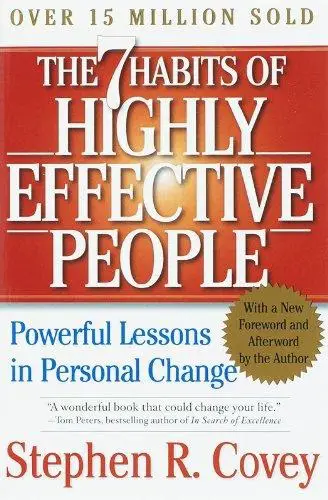
Stephen Covey’s The 7 Habits of Highly Effective People is perhaps one of the most well-known and best books for management professionals.
It explains how management is developed. It all begins with oneself.
You must be self-aware and know how to regulate yourself to be an effective leader.
One should be able to create his vision and affect those around him after he has a better understanding of himself, his strengths, and his flaws.
7. The One Minute Manager by Kenneth Blanchard

This management book is about creating clear expectations for the organization’s and employees’ success. The book’s method is similar to how followers, such as some of us, search for a great leader to follow.
The character has worked in a variety of firms and has witnessed many management methods. From totalitarian rule, in which only results are valued, ending in the death of its employees, to democratization, in which people are valued but the organization is doomed.
Then he came upon a manager who followed the one-minute approach. He makes his objectives and expectations clear so that everyone knows what he wants to accomplish and how he intends to do it. There’s also the one-minute rule and the one-minute praising method. Everything is completed quickly and clearly.
8. Turn the Ship Around!: A True Story of Turning Followers Into Leaders by L. David Marquet
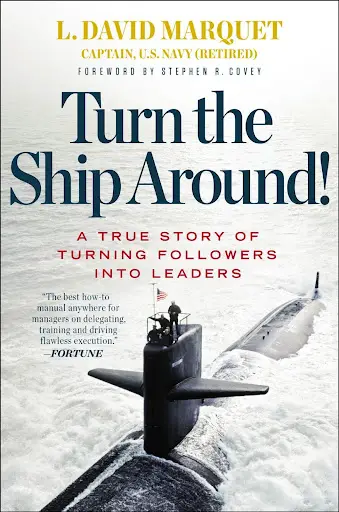
The author has shown in this book that if you identify an employee’s potential and convey it to them, they will realize it for themselves and accept responsibility for the work at hand.
This is certainly one of the best books for management professionals which you should check out. While he was a submarine commander, managing people militarily, he realized this.
When they came across a difficult scenario, he issued his instructions, and his crew obeyed even though it was impossible, almost creating a tragedy. He took a unique managerial style that yielded excellent results.
9. The Making of A Manager by Julie Zhuo
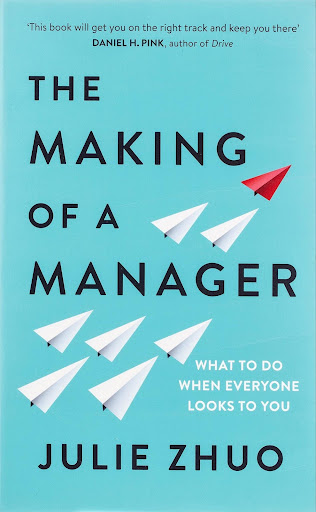
Many rookie managers have no intention of leading others. Instead, when their team grew, they were elevated to the position. As a result, having a clear understanding of their new obligations is one of the most critical obstacles they confront.
They must understand how to develop confidence within a group, what to concentrate on during the first few months, how to achieve better outcomes from others, how to deal with growing responsibility and a variety of other important management subjects.
This book authored by Julie Zhuo is one of the best books for management professionals. It covers a wide range of topics and is both comprehensive and practical, allowing learners to get started quickly.
10. Measure What Matters by John Doerr
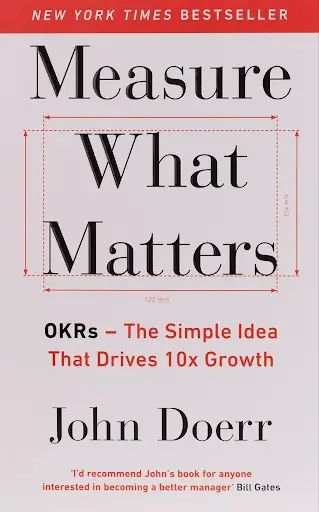
Managers typically find it challenging to define and convey strategic goals when a firm expands in size. And when different teams struggle to define and execute their top goals, growth can slow down or even come to a halt.
This popular management-related book is written by John Doerr. He shows how to better manage work objectives by using “Goals and Targets,” or GATs.
It’s a tried-and-true strategy that Google, Intel, and others have utilized in the past. Studies have shown that accountability, transparency, and cooperation are all increased by using this method.
11. The 21 Irrefutable Laws of Leadership: Follow Them and People Will Follow You by John Maxwell
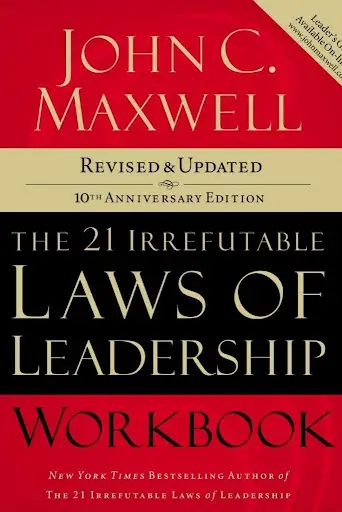
Maxwell’s The 21 Irrefutable Laws of Leadership is one of the best books for management professionals available. It is among the most popular books used by entrepreneurs of all time.
While there may be more “rules” of leadership than 21, Maxwell believes that these 21 are most valid and necessary for anybody to be successful, especially for.
Furthermore, these regulations apply to all positions of leadership in culture, including any industry and administration.
12. Multipliers: How the Best Leaders Make Everyone Smarter by Liz Wiseman
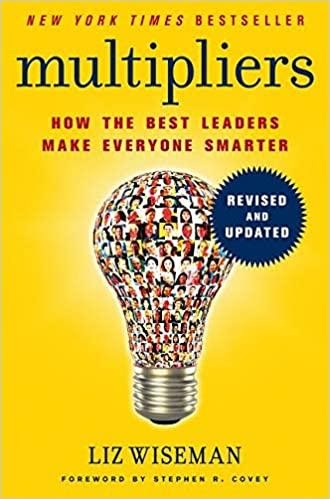
Multipliers were the leadership types identified in this 292-page book. The author used the term “multiplier” to describe leaders who are determined to optimize fewer human resources and turn them into innovation for the benefit of the entire business.
Diminishers, on the other side, are the team members who drain the team’s creativity and inventiveness. This book is about leading by example and channeling optimism to influence individuals throughout the business.
It is jam-packed with important essential concepts making it one of the best books for management professionals.
13. First, Break All The Rules by Marcus Buckingham & Curt Coffman
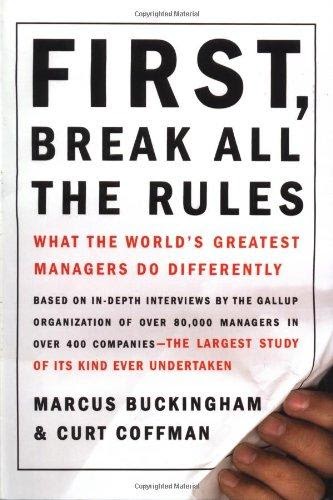
When it comes to handling people, great managers generally have their unique approach. Of course, each team is different, and each business has its own set of obstacles. As a result, identifying other managers’ best practices might be difficult.
The author, thankfully, did big research including over 80,000 managers. It targeted everyone from top management to front-line bosses, and it encompassed many various sorts of businesses, both large and small.
Breaking all rules took help from the information to find out what the top managers had in common. It presents a simple way of determining your organization’s current performance. It also includes several helpful hints on how to be a more successful manager.
14. The Dichotomy of Leadership by Jocko Willink & Leif Babin
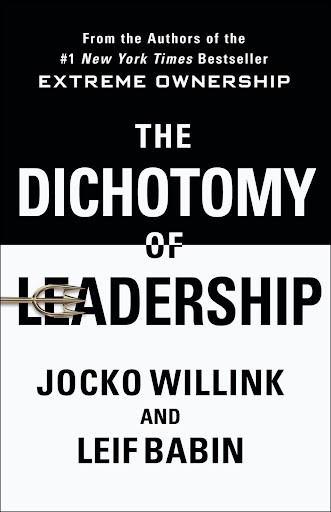
Striking the right balance between the two ends of the spectrum is a common characteristic of excellent management. As a result, determining the appropriate course of action in a circumstance when both alternatives offer advantages and disadvantages can be difficult.
Managers must, for example, establish a balance between conviction and modesty, guiding and obeying, and inspiring and centralizing. The title is about finding a better balance among leadership’s multiple dualities.
It divides twelve basic concepts into 3 main categories: managing your employees, maintaining your goal, and regulating yourself.
15. The Culture Code by Daniel Coyle
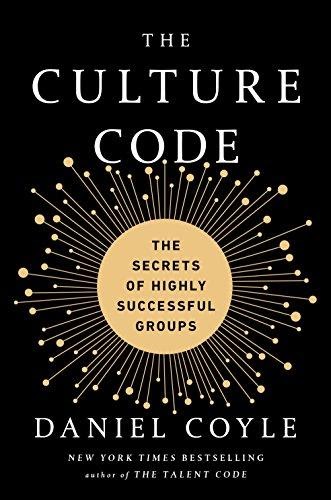
The understanding of the books is simple – the need to develop a strong internal culture in management. When employees collaborate with others, they are more efficient. As a result, managers must create a strong culture that encourages and enhances cooperation.
This book delves into the inner workings of extremely effective groups. Strong groups have three crucial abilities: Creating protection, exposing vulnerabilities, and developing meaning
It also includes real-world examples that managers may use to help them implement the principles in their businesses.
16. Influence: The Psychology of Persuasion by Robert B. Cialdini Ph.D.
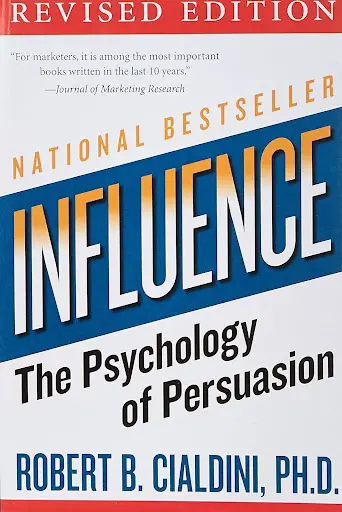
Dr. Robert Cialdini has built a career studying the psychology of persuasive communication, cooperation, and negotiation has earned him a global reputation as a veteran in these subjects.
He divides the concepts of power and conviction into 6 groups that are simple to learn and use in his book, Influence, The Psychology of Persuasion. This is one of the best books for management professionals.
It will not only educate you on how and where to convince others, but it will also educate you on how to guard yourself against fraudulent persuasion.
17. Creativity, Inc.: Overcoming the Unseen Forces That Stand in the Way of True Inspiration by Ed Catmull
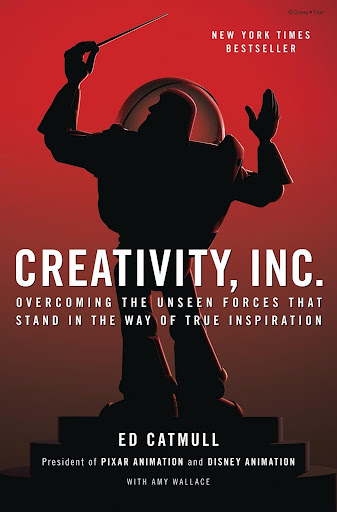
The co-founder of Pixar Studios — the guys behind so many most renowned and popular movies created this New York Times hit.
The writers of this book look at the attributes of management that have kept Pixar highly famous. Many excellent thoughts appear in this book, such as “Give a big dream to a weak team, and they will wreck it.”
The book shows that it is the manager’s responsibility to ensure that responsibility is safe for others to take.
18. Leadership and Self-Deception: Getting Out of the Box by The Arbinger Institute
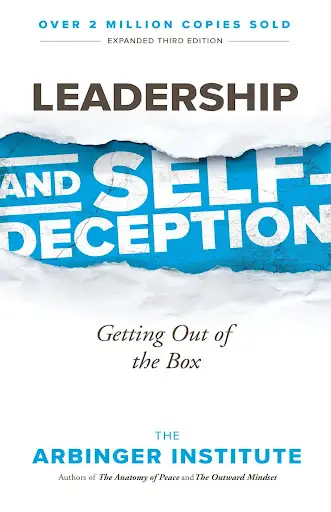
This book may be difficult to read, not so much because of principles or the language employed, but because it challenges the reader to take accountability for their issues.
Most of us are prone to blaming external factors for our issues. However, you must be able to acknowledge your involvement in the situation to properly identify answers.
The author is an expert in increasing the productivity of a business and resolving conflicts of interest.
19. Primal Leadership: Unleashing the Power of Emotional Intelligence by Daniel Goleman

What do you think the most significant quality of a leader is? Great leaders, according to them, have attributes like energy, compassion, brand management, and innate sense.
Using various real-world examples, the authors seek to identify and demonstrate those key qualities. Incompetent managers foster “misunderstanding” among their employees, but effective managers foster “excitations.”
Learning from such thoughts will greatly empower you in your managerial career, making it one of the best books for management professionals to read.
20. Who: The A Method For Hiring by Geoff Smart & Randy Street
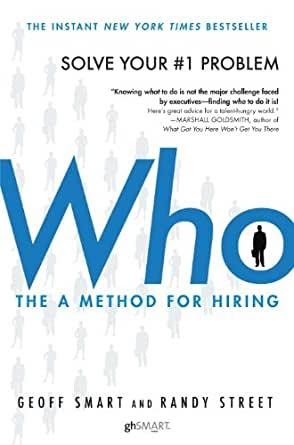
Hiring and retaining outstanding employees is one of the most important jobs for managers. Great hiring may propel a company forward, but a poor hire might put the company back months or years.
Regrettably, so many recruiting managers rely on ineffective or non-existent procedures. “A Method For Hiring” is introduced in this work. It’s a real and effective strategy that may help you establish your desired results, attract top people, and ask the appropriate questions to find the finest candidates.
Any manager making crucial employment choices should read it.
21. Your Brain at Work by David Rock
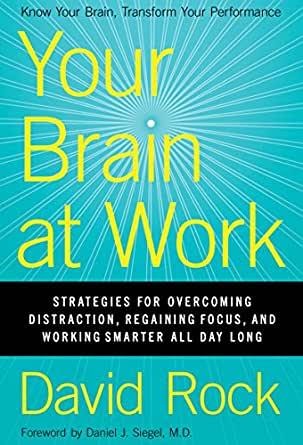
People’s concentration and creativity are becoming increasingly important in today’s enterprises. The environment, on the other hand, appears to be more distracted and hectic than it has ever been. Teammates find it challenging to produce their best job as a result.
The title here shows how knowing how the brain works might help individuals function more successfully. It begins with realistic productive ideas for individuals and then moves on to how management professionals can draw out the most from their groups and organizations.
The author does an excellent job of gathering each discovery and providing small suggestions to illustrate the ideas more understandably.
22. Swim With the Sharks Without Being Eaten Alive By Harvey B. Mackay

Mackay delivers useful tips on how to sell more than your competitors and encourages your staff in this book published by a self-made billionaire.
It’s a quick read with a lot of important information. It provides a lot of useful information, such as “If one hasn’t a goal, one hasn’t reached,”, “Make choices with your emotions but you’ll also eventually wind up with an emotional breakdown,” and “The individuals you don’t dismiss are the ones who are making your lives difficult”.
23. On Becoming a Leader by Warren Bennis
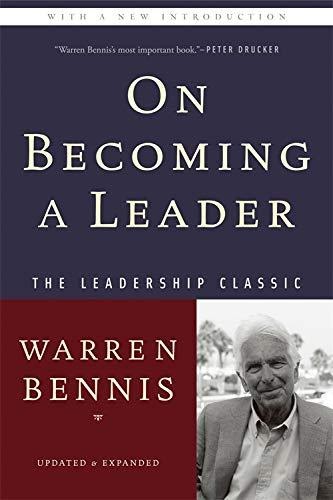
Warren Bennis, a combat veteran and a management professor at the University of Southern California, published this book to show the qualities of a successful leader.
He is a great believer in the notion that managers are created rather than born. This is one of the best books for management professionals available. It highlights several characteristics that constitute a successful leader.
A great manager, in his opinion, really isn’t afraid to try new things and can recognize the bigger context while remaining aware.
24. My Years With General Motors by Alfred Sloan Jr.
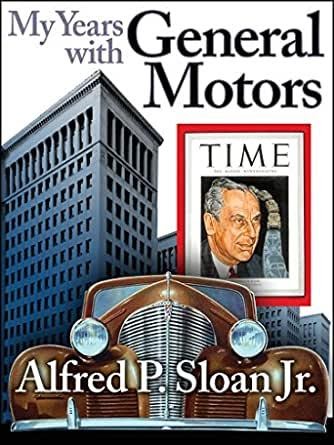
Another “great” in the study of management is this one. Sloan’s My Years With General Motors was an instant hit when it was first released in 1963.
The author discusses his “management discipline,” which he has used for decades and which has helped him become a successful leader. Bill Gates hails this work as the finest work on leadership, and it is still important today.
Financial World named it the top recommendation for its collection of essential reading.
25. Friend of a Friend: Understanding the Hidden Networks That Can Transform Your Life and Your Career

The capacity to build significant, long-lasting connections is an important part of becoming a great leader.
Although networking is an important part of establishing a business, what if it isn’t the only way to move ahead?
The book by David Burkus teaches how to make use of the relationships you’ve previously created to strengthen the ones that will benefit your company the most.
Conclusion
There are hundreds of management books available, but only a few of them truly connect with the people who lead.
More Business Management Book Reviews:
The twenty-five of the best books for management professionals mentioned above provide tried and true managerial skills and techniques. We hope you use it to improve yourself as a leader and help create productive members of society.

Editorial Team at 99BusinessIdeas is a team of experts led by Rupak Chakrabarty with over 25 years of experience in starting and running small businesses. Started in 2010, 99BusinessIdeas is now one of the largest free small business resources in the industry.
